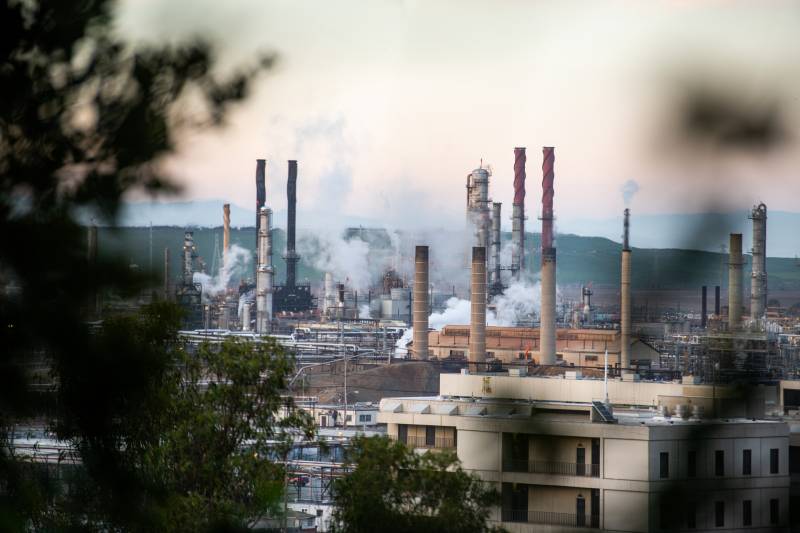“Our people are working 12-hour shifts,” said Tracy Scott, president of USW Local 5, in an interview last month. “They’re asking them to come out on their days off and work additional 12-hour shifts, which compromises their efficiency and effectiveness by fatigue.”
White said his local chapter asked for a 5% pay increase above what was agreed to in the national deal because of the higher cost of living in the Bay Area.
“The fight has begun. A fight for maintaining a standard of living,” White said in a text message to KQED Monday morning.
Chevron executives say their contract offer is fair, competitive and responsive to the union’s concerns.
“However, the union’s demands exceeded what the company believes to be reasonable and beyond what was agreed to as part of the national pattern bargaining agreement,” said Chevron spokesperson Linsi Crain.
The strike is taking place amid significant increases in gasoline prices nationwide, particularly in California, where the cost at the pump is higher than in any other state. The average price per gallon of gasoline in the state reached $5.85 on Monday, according to AAA. The average in San Francisco is now $5.92.
If the strike causes the refinery to shut down, that would be bad news for the state’s consumers, said Severin Borenstein, an energy economist at UC Berkeley Haas School of Business.
“It’s one of the major producers in the state, and California spot prices for wholesale gasoline are unusually high right now relative to the rest of the country, which indicates tight refining capacity,” he said. “Losing a major refinery would almost certainly push prices up substantially.”
Chevron has emphasized it plans to continue normal operations at the Richmond plant.
“We anticipate no issues in maintaining a reliable supply of products to the market,” Crain, from Chevron, said.
Tolly Graves, director of the Richmond facility, on Sunday told refinery workers the company had “notified USW that it will proceed with a safe and orderly refinery turnover,” according to a memo to employees obtained by KQED — implying that Chevron planned to transfer operations from union workers to managers.
“Employees scheduled to work Sunday night should not report,” Graves said in the memo.
The union, along with its supporters and some elected leaders, have raised concerns about the increased risk of accidents if operations are handled by refinery managers and possibly other workers less familiar with the facility.
Contra Costa County Supervisor John Gioia, who represents the district where the facility is located, says he’s concerned “the highly trained and experienced USW workers will not be operating the refinery.”
“I continue to urge a resolution of the labor issues so that the Richmond community can feel secure that the most experienced refinery operators remain on the job running the facility,” he said in an email.

